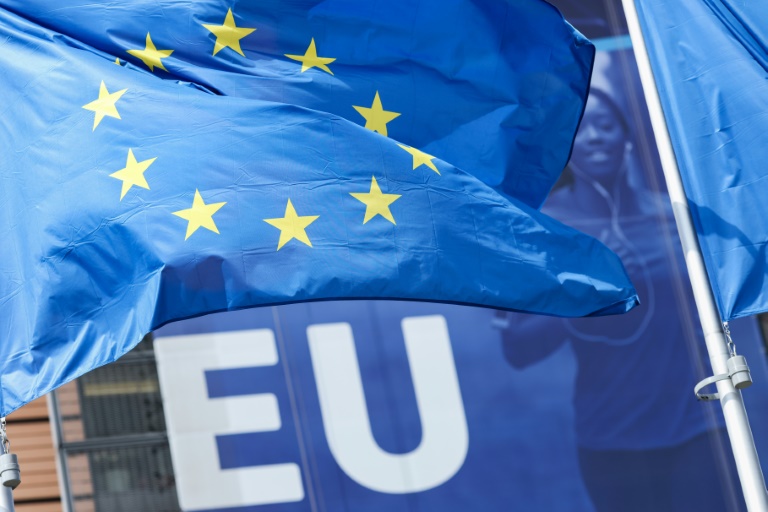Germany and France will attempt to persuade EU leaders to relaunch regular meetings with Russian President Vladimir Putin on Thursday, in a controversial bid that Ukraine slammed as “dangerous”.
Berlin and Paris late Wednesday put forward a last-minute proposal for the bloc to contemplate the idea of a potential summit with Putin in the wake of US President Joe Biden’s sit-down with him in Geneva last week.
Moscow said Putin was a “supporter” of the proposal, which would potentially revive a regular fixture that was frozen in 2014 after the takeover of Crimea by Russia.
“In my opinion, we as the European Union must also seek direct contact with Russia and the Russian president,” Chancellor Angela Merkel told Germany’s parliament ahead of the summit.
“It is not enough for the American president to talk to the Russian president,” she said, stressing that the European Union too “must also create different formats for talks”.
Merkel, who could be attending her last EU summit with German elections set for September, insisted that the 27-member bloc should meanwhile put up “a united front against the provocations” by Russia.
– ‘Dangerous deviation’ –
Ukraine’s foreign minister blasted the German-French effort to sit down formally with Putin given that the longtime leader had failed to demonstrate any willingness to change.
“Initiatives to resume EU summits with Russia without seeing any progress from the Russian side will be a dangerous deviation from EU sanctions policy,” Dmytro Kuleba said after meeting the EU’s foreign policy chief in Brussels.
Merkel and French President Emmanuel Macron will face resistance from numerous EU member states — especially in eastern Europe — who were blindsided by the push and remain deeply wary of talking to the Kremlin.
EU ambassadors failed to thrash out a common position on the proposal on Wednesday and left it for the leaders to hammer out the details when they discuss the issue late on Thursday.
The 27-nation bloc is looking to revamp its strategy on keeping its vast eastern neighbour in check as Brussels admits that relations with the Kremlin look set to deteriorate further despite having already reached their “lowest level”.
Moscow is at loggerheads with a number of Western capitals after a Russian troop build-up on Ukraine’s borders and a series of espionage scandals that have resulted in diplomatic expulsions.
The Merkel-Macron plan insists the EU has to stand firm and united on Moscow, but should look to engage with the Kremlin on issues of mutual interest such as climate change, health, the Iran nuclear deal and conflicts in Syria and Libya.
Proposed draft conclusions put forward by Berlin and Paris for the EU summit say the bloc “will review the existing formats of dialogue with Russia, including at Leaders’ level”.
But they also lay out that leaders will ask the European Commission “to present options for additional restrictive measures, including economic sanctions” to push back against “any further malign, illegal and disruptive activity by Russia”.
– ‘Premature’ –
One European diplomat argued that “the EU must stand firm and establish a counterbalance against Russia. It must also put itself in a position to resist, in particular, cyberattacks. And it must be able to engage in dialogue with Russia on the subjects for which it has interests”.
Another countered that it was “premature” to talk about a meeting with the Russian leader.
“Why have a summit with Putin if there is nothing positive to discuss,” the diplomat said.
Details on the exact format for any potential meeting with Putin are still unclear — and it remains to be seen if it would involve all 27 national leaders or the heads of the European Commission and Council.
The last summit between EU chiefs in Brussels and Putin took place in early 2014, but the Kremlin strongman has always preferred to deal bilaterally with individual nations.
Ties between the EU and Russia have been in the doldrums since the Kremlin annexed Crimea from Ukraine in March 2014.
The bloc has slapped waves of sanctions on Moscow, and Russia has responded with its own countermeasures.










